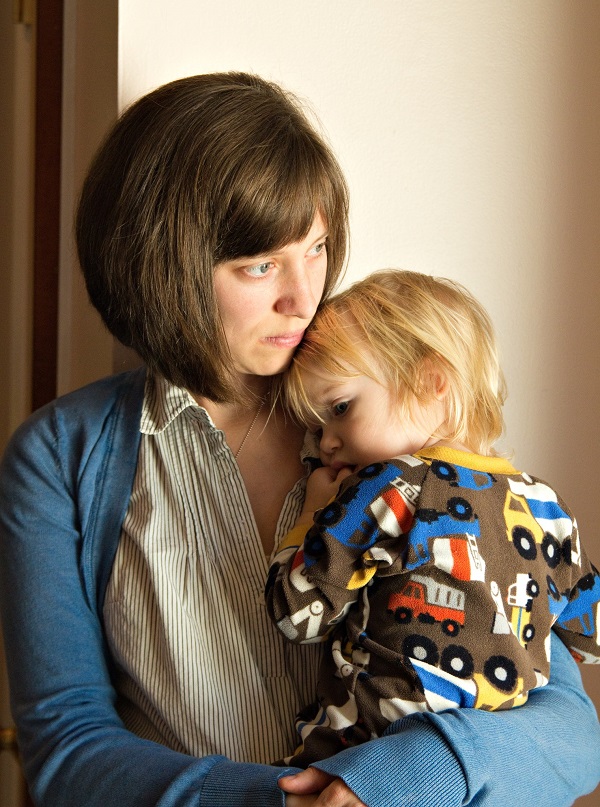I work with many mothers and mothers-to-be who are used to being relatively in control of their lives and their day-to-day happenings. I’m this way as well. I like to have a clear idea of what’s going to happen when, and a detailed plan for each day, life event, and major transition. I haven’t met too many adults who are truly the “go with the flow” type (my husband is one of these people and it’s simultaneously frustrating and refreshing for me!). Over the years, in talking with mothers planning for birth and mothers in their early postpartum days, this theme continues to surface. I have had many conversations about the challenges of not being able to control exactly how our birth experience will unfold and not being able to control what our days are going to look like with a new baby.
After 6 years of pregnancy and parenting, and much work supporting families during birth and postpartum, I am beginning to truly understand the lessons that I learned during my birth experiences and I’m applying them actively to help me have a healthier mindset for parenting my children. If you’re in your earlier days of parenthood, maybe you’re still pregnant with your first or have a child in his/her first year, it might be hard to see this. I share my reflections because I wish I’d had some more of this perspective in my earlier days.
As parents, we ultimately cannot control our children. They are their own people, purely themselves and so very unique. We try and try to control and it’s almost always from a place of love. But oftentimes, the more we try to do that, the more dissatisfied we become. If we fail, we are frustrated. If we succeed, we have run the risk of altering who they truly are at their cores. I came across this poem by Kahlil Gibran in my earlier parenting years and after I read it, I realized how I had been trying in vain to craft my son into something he was not:
“Your children are not your children.
They are the sons and daughters of Life’s longing for itself.
They come through you but not from you,
And though they are with you yet they belong not to you.
You may give them your love but not your thoughts,
For they have their own thoughts.
You may house their bodies but not their souls,
For their souls dwell in the house of tomorrow,
which you cannot visit, not even in your dreams.
You may strive to be like them,
but seek not to make them like you.
For life goes not backward nor tarries with yesterday.
You are the bows from which your children
as living arrows are sent forth.
The archer sees the mark upon the path of the infinite,
and He bends you with His might
that His arrows may go swift and far.
Let your bending in the archer’s hand be for gladness;
For even as He loves the arrow that flies,
so He loves also the bow that is stable.”
I wasn’t trying to control him or his behavior because I didn’t love who he was, but there were parts of who he was that were inconvenient for me (his sleep schedule) and there were parts of him that didn’t look like society’s ideal (he wanted me close all the time into his second and third years of life). I find myself still falling into this trap, sometimes feeling initial disappointment in seeing my child take interest in something that’s not considered as valuable as other interests by our culture. Or trying to micromanage my children’s relationships with others, when really I need to just let them flow and unfold naturally and allow the feedback my children receive from others be a good guide for their own interpersonal growth.
So, how does this relate to birth? And how can birth help teach us about letting go of control for our continued parenting years? I’m willing to bet that you can think of moments during your pregnancy or birth when you wished you had more control or your lack of control stirred up fear or dissatisfaction within.
Perhaps you were 41 weeks pregnant and ready to have your baby. You felt frustrated that you weren’t in labor yet and wanted to do something to bring labor on.
Perhaps you went into labor at 38 weeks, before you truly felt ready, and wished you could press pause for a little while.
Perhaps your baby was breech and you ultimately ended up having to schedule a cesarean because you couldn’t find somebody to catch a breech baby (this was my experience) and you struggled with this change of your ideal birth plan.
Perhaps during labor your contractions were coming fast and hard and you worried about how you would handle them as labor progressed.
In all of these examples, something is happening that doesn’t feel ideal. There is a clear wish for things to be different and for more control over the situation. Fear often plays a part here. Each of these situations is an opportunity to practice letting go of control and staying present in the moment. Just like with our children as they grow, if we can tune into exactly what is happening now, we might find that we can accept it, embrace it, and avoid the tension that comes from fighting it or trying to change it. I’m finding a new freedom that comes with letting go of what I hoped might happen or what could be. I still have a lot of work to do and still find myself scrambling for more control over something daily, but those moments are beginning to spread themselves out and I’m enjoying the space it’s left for being more present and enjoying my life and my children just a bit more.
